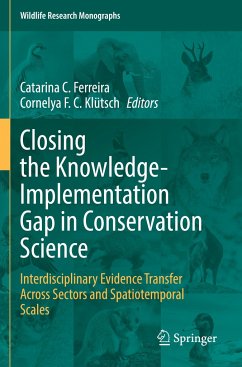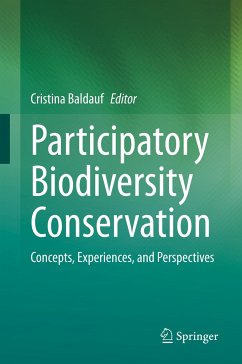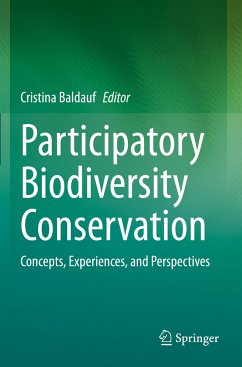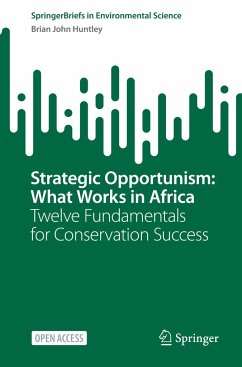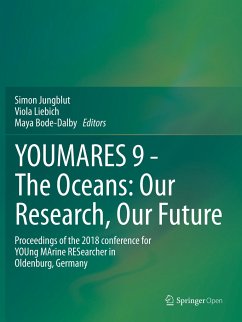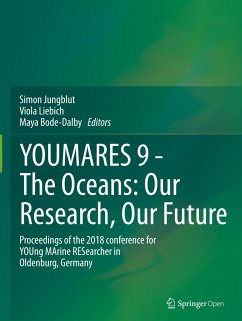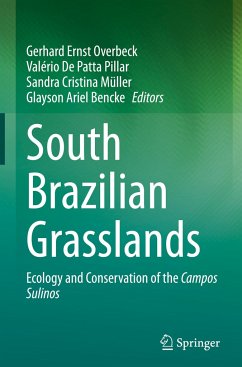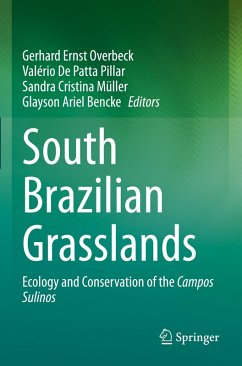
Closing the Knowledge-Implementation Gap in Conservation Science
Interdisciplinary Evidence Transfer Across Sectors and Spatiotemporal Scales
Herausgegeben: Ferreira, Catarina C.; Klütsch, Cornelya F. C.

PAYBACK Punkte
65 °P sammeln!
This book aims to synthesize the state of the art on biodiversity knowledge exchange practices to understand where and how improvements can be made to close the knowledge-implementation gap in conservation science and advance this interdisciplinary topic. Bringing together the most prominent scholars and practitioners in the field, the book looks into the various sources used to produce biodiversity knowledge - from natural and social sciences to Traditional Ecological Knowledge and Citizen Science - as well as knowledge mobilization approaches to highlight the key ingredients that render succ...
This book aims to synthesize the state of the art on biodiversity knowledge exchange practices to understand where and how improvements can be made to close the knowledge-implementation gap in conservation science and advance this interdisciplinary topic. Bringing together the most prominent scholars and practitioners in the field, the book looks into the various sources used to produce biodiversity knowledge - from natural and social sciences to Traditional Ecological Knowledge and Citizen Science - as well as knowledge mobilization approaches to highlight the key ingredients that render successful conservation action at a global scale. By doing so, the book identified major current challenges and opportunities in the field, for different sectors that generate, mobilize, and use biodiversity knowledge (like academia, boundary organizations, practitioners, and policy-makers), to further develop cross-sectorial knowledge mobilization strategies and enhance evidence-informed decision-making processes globally.



